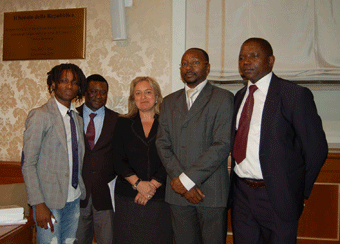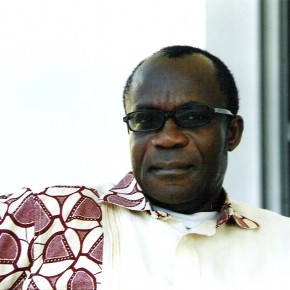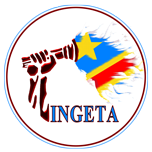Source: The Africa News. Par Stephen Ogongo Ongong’a.
Congolese in Italy have strongly condemned attempts to split Democratic Republic of the Congo into different countries. During a recent press conference and presentation at the Senate’s Human Rights Commission, the associations of Congolese reaffirmed that the war in the country is not an ethnic but an economic war.

DRC is a vast country with immense economic resources. The country abounds with minerals including diamonds, gold, copper, cobalt and zinc. It also has huge supplies of coltan used in mobile phones and other electronic gadgets. The Congolese community in Italy condemned illegal exploitation of the DRC’s raw materials by multinational companies blaming it for the unending conflicts in the country.
It is estimated that since 1996, the war in the country has led to more than six million deaths, making it the most lethal since World War II. “Considering that war continues in different forms, we believe that between seven and eight million people have died,” said John Mpaliza, a spokesperson of the Congolese in Emilia Romagna. “It’s as if all of a sudden, the entire population of Sweden disappears.”
On 1st October 2010, the UN released a report on what it termed “indescribable” atrocities committed in the DRC from 1993 to 2003. In that period, the report revealed, tens of thousands of people were killed, and numerous raped and mutilated by both armed Congolese groups and foreign military forces. “Violence in the DRC was, in fact, accompanied by the apparent systematic use of rape and sexual assault allegedly by all combatant forces,” the report said.
The report concluded that “the majority of the incidents of sexual violence reported could, if judicially proven, constitute offences and violations under domestic law, international human rights law, and international humanitarian law.” Presidential elections in the DRC which were held on 28th November 2011 were marred by violence and rigging. Outgoing President Joseph Kabila was declared the winner, but the main opposition candidate Étienne Tshisekedi rejected the results and has since been claiming to be the country’s president, making the DRC to technically have two presidents.
Western countries such as France, UK, USA, and some African countries including Rwanda and Uganda are suspected to be behind a plan to split up the DRC into small countries so that they can have total control of the natural resources in the area. “Democratic Republic of the Congo is one and indivisible,” Mr. Mpaliza said. Senator Pietro Marcenaro, President of the Senate’s Human Rights Commission said the situation in the DRC should weigh on the conscience of Europe. “Genocide in the country should attract the attention of all,” he said.
The DRC is potentially one of the richest countries in the world, which unfortunately is the poorest, Senator Marcenaro said. There should be a focus on those who have made fortunes out of chaos in the country, he added. Senator Marcenaro called for redefinition of the mandate of United Nations Stabilization Mission in the Democratic Republic of the Congo (MONUSCO). Apart from simply protecting civilians and consolidating peace in the DRC, MONUSCO’s mandate should also include protection of refugees and help build the country’s future, Senator Marcenaro said.
As a solution to the political stalemate in the country following last year’s elections, Senator Marcenaro said there should be an inclusive political process without violence, which could lead to a power sharing agreement between President Kabila and Mr. Tshisekedi. He, however, pointed out that there can be “no reconciliation without truth and justice.” Senator Barbara Contini, a member of the Senate’s Human Rights Commission praised the Congolese in Italy for standing up to highlight the situation in their home country.
The DRC is a country that has been exploited economically, but its resources have barely benefitted the local people, she said. Senator Contini described recent elections in the DRC as “substantially fake”. She said Italian media usually cover the DRC superficially because they don’t understand the reality in the country. Jean-Jacques Diku, spokesperson of the Congolese in Rome said the question that all Congolese are asking is – how has such a big number of people died in the DRC without something being done to stop it? Unfortunately, he said, most people abroad are not informed about what’s happening in the DRC, and blamed the media for totally ignoring the situation in the country. “We are determined to fight and we’ll not give up until we obtain justice,” Mr. Diku said, adding that abandoning the fight for justice would amount to lack of respect for those who have died.
Mr. Mpaliza appealed to the Congolese to overcome tribal affiliations and consider all brothers and sisters. He urged the media not to wait to only talk about the DRC when people are dying. MONUSCO soldiers hardly protect the local population, they are never there when people are attacked, Mr. Mpaliza said, and blamed them for always arriving late. To help raise awareness about the situation in the country, Mr. Mpaliza is organising a peaceful march from Reggio Emilia to Brussels from 29th July 2012.




